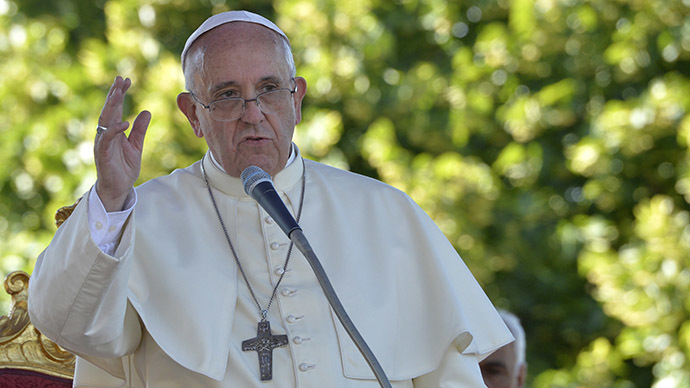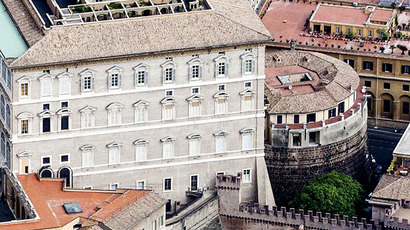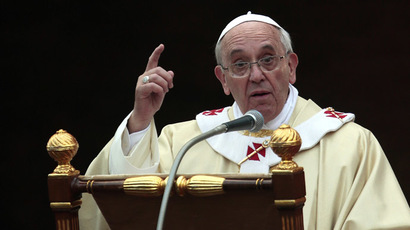Exploiting nature 'sin' of our time – Pope

Pope Francis in an address to Italian students has called for people to respect nature and called the destruction of South America’s rainforests, as well as other environmental destruction, “our sin.”
The Argentine-born Pope was addressing a gathering of students, farmers and laid-off workers at the University of Molise in southern Italy.
“When I look at America, also my own homeland, so many forests, all cut, that have become land… that can no longer give life. This is our sin, exploiting the Earth and not allowing her to give us what she has within her,” the Pope said in an apparently off-the-cuff speech.
“This is one of the greatest challenges of our time: to convert ourselves to a type of development that knows how to respect creation,” he told the university meeting.
Since being elected in March 2013, Pope Francis has made numerous appeals to alleviate the plight of the world’s poor and to defend the environment. He is also writing an encyclical, a letter sent out to other churches, on mankind’s relationship with nature.
The rainforest in South America, as in other parts of the world, is in great danger. According to National Geographic, during the past 40 years, 20 percent of the Amazon rainforest has been cut down, more than in the entire previous 450 years since European colonizers arrived in the area.
Environmentalists fear that an additional 20 percent may be lost in the next two decades and if this happens, things will start to unravel quickly as the forests’ ecology will no longer be self-supporting.
At the moment, the Amazon still produces about half its own rainfall through the moisture the vegetation releases into the atmosphere, but if enough of the trees are chopped down, then coupled with droughts and wildfires, the remaining trees will dry out and die, leaving scrubland.














